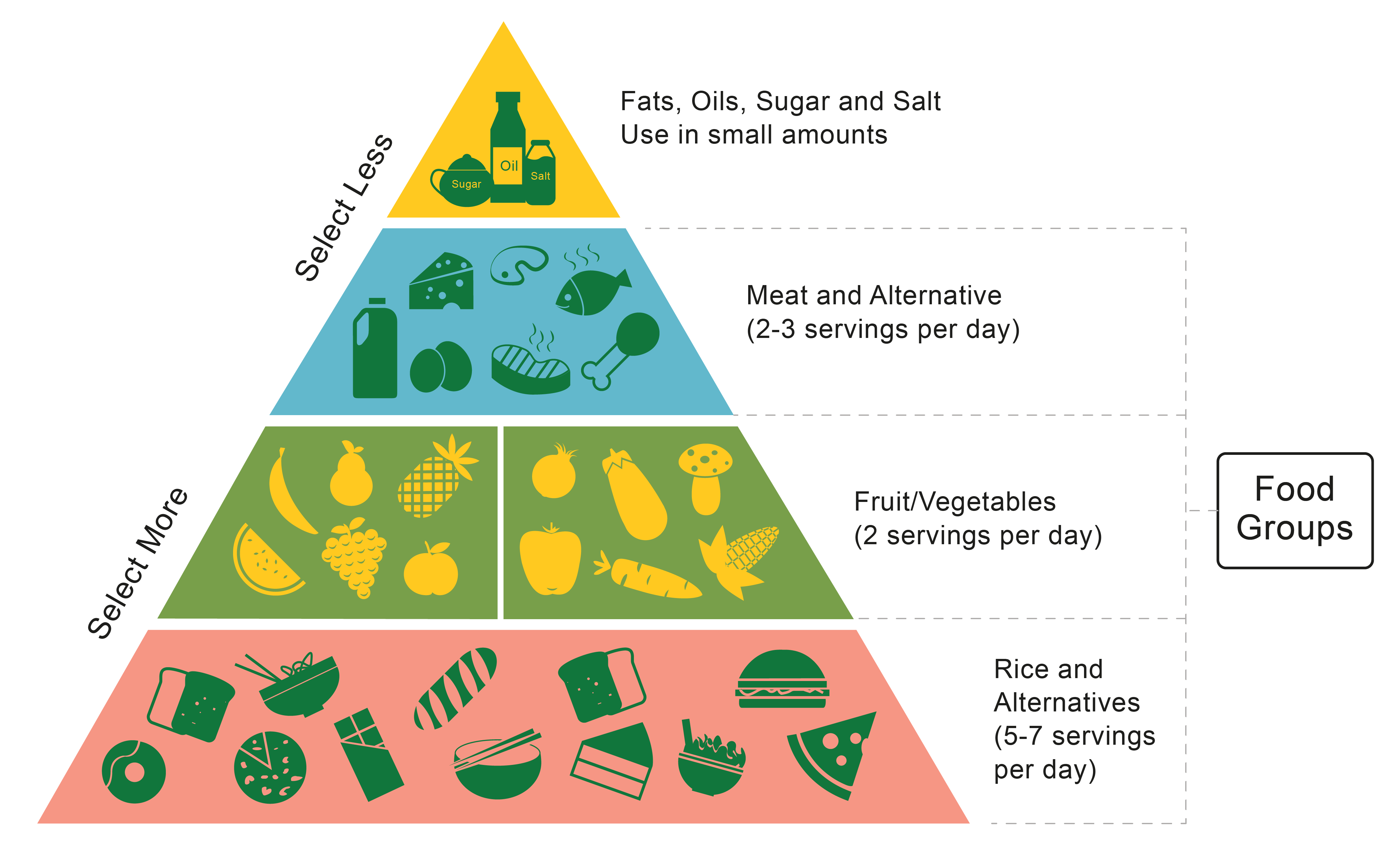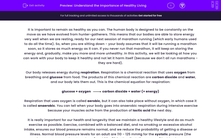It is important to remain as healthy as you can. The human body is designed to be constantly on the move as we have evolved from hunter-gatherers. This means that our bodies are able to store energy very well when we are resting, ready for our next session of marathon running (which early humans used to do all the time). So, when you are sitting down - your body assumes that it will be running a marathon soon, so it stores as much energy as it can. If you never run that marathon, it will keep on storing the energy and, gradually, make you more and more unhealthy. In this activity, we will be looking at how you can work with your body to keep it healthy and not let it harm itself (because we don't all run marathons - they are hard).
Our body releases energy during respiration. Respiration is a chemical reaction that uses oxygen from breathing and glucose from food. The products of this chemical reaction are carbon dioxide and water, and our body lets them out. This is the chemical equation for respiration:
glucose + oxygen ![]() carbon dioxide + water (+ energy)
carbon dioxide + water (+ energy)
Respiration that uses oxygen is called aerobic, but it can also take place without oxygen, in which case it is called anaerobic. You can tell when your body goes into anaerobic respiration during intensive exercise because your muscles ache from the production of lactic acid the next day.
It is really important for our health and longevity that we maintain a healthy lifestyle and do as much exercise as possible. Exercise, combined with a balanced diet, and no smoking or excessive alcohol intake, ensures our blood pressure remains normal, and we reduce the probability of getting a disease or illness. Normal blood pressure levels for an adult are 110 - 125 mmHg for the systolic pressure (the maximum pressure our heart produces) and 60 - 70 for the diastolic pressure (the blood pressure between heartbeats).
A balanced diet consists of all types of food but less salt, sugar and fat. The pyramid below shows the different types of food and how much we should be eating. Study it carefully because many questions will be based on it.

Red meat, chicken, fish, as well as pulses (beans, lentils, chickpeas) provide protein necessary for growth and repair. Rice, bread and pasta provide carbohydrates for energy. Fruit and vegetables provide vitamins and minerals. It is worth noting the importance of fibre in cereals, fruit and vegetables, which is necessary for a healthy digestive system, and water, which makes up most of our body.
Now let's have a go at some questions.








